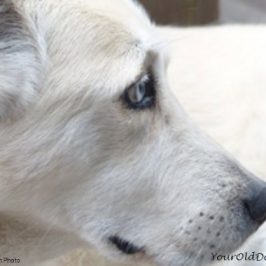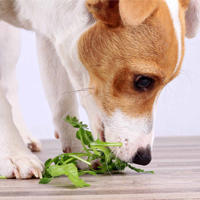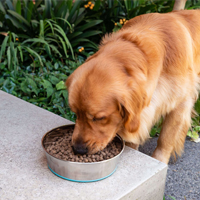
How To Help Grieving Dogs
We may not be totally aware of their feelings, but grieving dogs especially mourn the death of their owners.
One story that comes to mind is the heartwarming account of an army dog that died hours after his British soldier-partner was killed in a fight.
It’s said that stress was likely the cause of the seizure, although a veterinarian admitted that the dog probably died of grief. You can read more here.
But dogs not only mourn their owner’s death; they also grieve for the passing of their animal friends or offspring. And they seem to display the same signs of grief as humans do: loss of appetite, weight loss, listlessness, timidity, and general loss of interest.
Dogs experience grief quite long – from weeks to months, and possibly even years, depending on how strong the bond was between the dog and his deceased friend. Remember the famed Greyfriars Bobby and Hachiko? These loyal grieving dogs spent the rest of their lifetime mourning the loss of their owners. Greyfriars Bobby spent 14 years on top of the grave of his owner, while Hachiko stayed at a Japanese train station for nine years, waiting for his deceased master’s return.
Failure to manage the dog’s grief might result in behavioral and health problems.
So if you are currently handling a grieving dog, here’s how you can help him move on.
- Understand the loss. The dog might not be grieving over death itself but over the separation and absence of a friend. Sharing his life with someone, either with a human or animal pal, allowed the dog to rely on that friend and build his life around the friend and their routine. When the pal passes away, the routine is suddenly put to a halt, sending the dog into a great distress and disorientation. What the dog needs now is someone who can fill in the loss.
- Provide distractions. Give the dog lots of opportunities to move on and enjoy himself or someone else’s company. For example, have a joyride with the dog. Play with him in the garden. Or go for a long walk. The key here is to get the dog preoccupied. I remember the dog I had few years ago, whose puppies died days after their birth. She was howling endlessly as she tried to look for the puppies, which by that time were already buried. She finally stopped when she was petted and taken for a long walk.
- Introduce new acquaintances. You don’t necessarily have to get a new pet or give the dog to a possible owner. What you need to do is to at least allow him to have social interaction. For example, let him play with a friend’s dogs or let a family member caress the dog. This he will need to form a new bond with others.
- Medicate if necessary. Medication is only applicable to severe cases of depression. And take note that only a veterinarian can prescribe drugs. Under no circumstances should you diagnose and medicate a bereaved dog. If the dog shows extreme signs of depression, visit a veterinarian for a diagnosis at once. You can also look into natural treatments for your dog’s depression. Flower Essences can be a huge help.
As with humans, grieving dogs have a hard time coping with death or loss. But like we do, dogs eventually move on if given a supportive environment.
Article By Guest Blogger, Margaret Keely, a healthcare writer and nursing education provider who is a dog lover and hopes to educate other dog owners on proper dog care.










